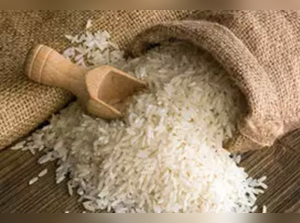
“Hardly any new orders are coming from the overseas markets. Unless the Covid situation improves in the country, we do not see good movement of basmati rice to the global markets,” Nathi Ram Gupta, president of All India Rice Exporters’ Association (AIREA), told ET.
India had shipped 4.63 million tonnes of basmati rice in FY21 and 4.45 million tonnes in FY20.
Gurnam Arora, joint managing director of Kohinoor Foods, said rising shipping cost is also a major concern for buyers.
Arora said the situation was improving after the country went through the first wave of Covid-19. But the second wave of infections has impacted the export business in a significant way.
“It’s not that the export has come to a complete halt. Very few orders are coming and exporters are trying to meet those orders. But there is a lot of fear among the international buyers over rising Covid cases in India,” said Arora. “With the significant rise in freight rates, we see buyers adopting a wait-and-watch stance. As a result, there is a slower start in shipments since the beginning of the current financial year.”
Ocean freight rates have moved up by 50-60% for both container and break bulk cargo, due to which the share of freight cost in the total product cost of rice has increased significantly.
Vinod Kaul, executive director of AIREA, said the offtake of basmati rice has come down since the start of Ramadan.
“This is impacting our basmati exports too. Also, the region is passing through financial crisis due to the outbreak of Covid. So, they have moved to some cheaper variety of rice, which, too, is impacting our basmati rice exports,” said Kaul. “And above all, there is the fear of Covid spreading through the consignments, which is keeping the global buyers away.”
According to Kaul, though it is difficult to assess the impact of these factors on the overall exports of basmati rice in FY22, they could lower April exports by 20-25% from the year-ago month.
However, exporters of non-basmati rice may not face as much problem as orders from Africa, a major buyer of this rice, are steady.
“Africa accounts for 72% of non-basmati rice exports and the flow of order from the country is steady. The trend shows that non-basmati rice exports are likely to touch FY21 figures,” Kaul said.
In FY21, India had exported 13.08 million tonnes of non-basmati rice compared with 5.05 million tonnes in FY20.
Read More News on
Download The Economic Times News App to get Daily Market Updates & Live Business News.
Subscribe to The Economic Times Prime and read the ET ePaper online.
Read More News on
Download The Economic Times News App to get Daily Market Updates & Live Business News.
Subscribe to The Economic Times Prime and read the ET ePaper online.









 Get Unlimited Access to The Economic Times
Get Unlimited Access to The Economic Times
